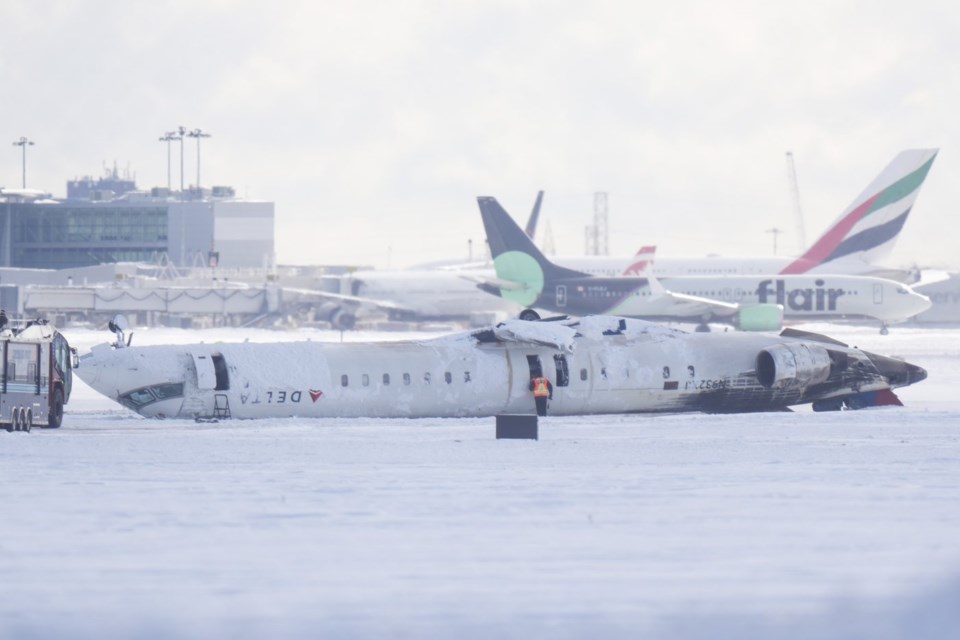With a plane sitting upside-down on the tarmac at the Toronto airport, Anne Robinson remained pragmatic about the slim chance she could end up in a similar crash.
"Deep down, it does (scare me), but it's not going to stop me," Robinson said Tuesday after her flight out of Toronto Pearson International Airport was cancelled due to the crash.
Similar trepidation over air travel is likely in the weeks ahead, says one psychologist, as several high-profile plane accidents have been in the news in recent weeks.
"A lot of people will suddenly be thinking, 'Oh, maybe this is a much more dangerous form of travel than I realized,' and it probably really isn't," said Steve Joordens, a psychology professor at the University of Toronto.
"I would not be surprised to see a lot of individuals just cancel their travel plans and just make the decision that they're not comfortable doing that right now."
On Monday, a Delta Air Lines plane crashed and flipped upon landing in Toronto, leaving two passengers seriously injured.
It was the second accident in North America involving a commercial airline in as many months. In January, a commercial airliner about to land in Washington, D.C., crashed in mid-air with a U.S. army helicopter, killing 67 people.
Also in January, a small medical plane slammed into the ground in Philadelphia and burst into flames, killing seven.
And on Feb. 6, a small regional plane crashed off the western coast of Alaska, killing all 10 on board.
Joordens said consumers may reconsider air travel in the short term despite evidence showing it remains one of the safest forms of travel.
A study published last year in the Journal of Air Transport Management found the death risk per boarding for air travellers was one in 13.7 million between 2018 and 2022.
Joordens said research from the early 2000s, conducted after the Sept. 11, 2001, terrorist attacks in the U.S., found people believed the likelihood of their plane being hijacked was higher than statistics showed.
These events and recent crashes attract significant media attention and tend to inflate risk perceptions, Joordens said. He added that background stressors, like world events and politics, can exaggerate a person's view of risk.
"We know everybody is sort of humming along with their fight-flight reflex almost engaged," Joordens said.
In the interim, Joordens said those who consistently travel for business may find the coming weeks challenging, particularly given the volume of video footage of the recent crashes that has proliferated across news and social media.
Karen Penseney, who was waiting at Pearson for a flight to Portugal, said she has been concerned by recent crashes in the U.S., but still intends to forge ahead with her travel plans.
"(There's) a little bit of risk," Penseney said. "Life has a certain amount of risk in everything."
This report by The Canadian Press was first published Feb. 18, 2025.
— With files from Maan Alhmidi in Toronto.
Matthew Scace, The Canadian Press



